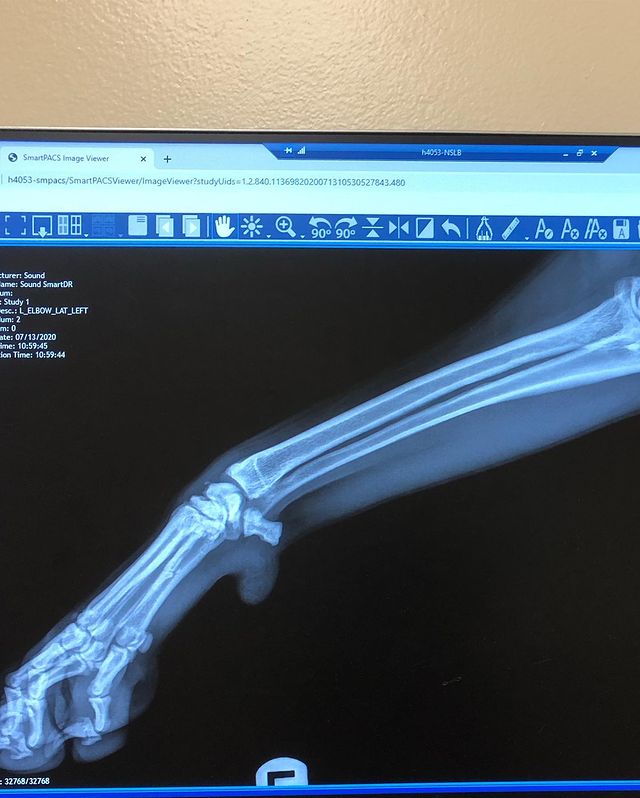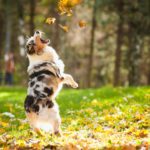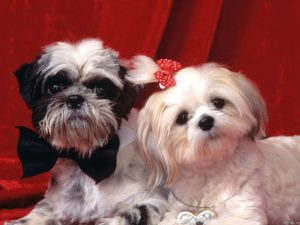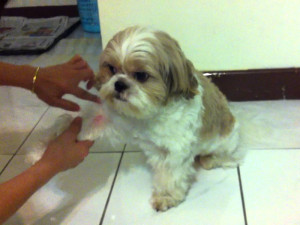[dog_breed_widget id=169]
The Golden Retriever is an instantly recognizable breed. Its flowing golden fur and loyal and loving disposition make for a brilliant companion. Because of their friendly nature and tolerant attitude, these dogs also make great family pets even for those with young children. Golden Retrievers also have a high level of intelligence and can make great working dogs with typical roles including being a therapy dogs and service dogs.
However, like any breed, the Golden Retriever does come with its own set of health problems that can cause issues. Read on to find out about the Golden Retrieves common Health issues so you can have all the appropriate knowledge before you decide to adopt one of these brilliant companions.
Hip Dysplasia
Hip Dysplasia is one of the most common health issues found in Gold Retrievers and is similarly common among other large or giant breeds. The issue can be seen in roughly 8% – 15% of all Golden Retrievers. Hip Dysplasia is a degenerative polygenic disease that is passed down genetically and affects the dog’s hindquarters.
Hip Dysplasia in dogs can either develop really early on in the lifespan, sometimes as early as 4 months old, or can occur in a late-onset form. Most dogs with hip dysplasia form a subluxation on the hip bone, meaning a partial or incomplete dislocation of the joint. This is likely because of joint laxity, or in other words, loose joints that bend more than usual, or a shallow hip socket joint.

Both of these issues can lead to Hip Dysplasia which causes the ball and socket of the joint to rub and grind instead of sliding smoothly, therefore resulting in the deterioration of the joint. In severe cases, this can lead to the loss of function in the affected joint.
To make sure you spot Hip Dysplasia as fast as possible, have a look out for these symptoms that may be present:
- Lameness in the hind leg
- A “hopping” gait
- Decreased activity
- Difficulty or visible reluctance to climb stairs, jump, or run
- Loss of thigh muscle mass
- Increased shoulder muscle mass (due to compensating for the hind leg)
There are many options for treatment depending on the severity of the condition. If the dog’s case is mild your veterinarian may recommend a weight reduction diet to take away excessive straight on the hips, joint supplements, and exercise reduction, especially on hard surfaces. If the Hip Dysplasia is more severe then surgery may be suggested. Either to improve the function of the joint or as a total hip replacement.
Skin Conditions
Golden Retrievers are often praised for their beautiful coats however as their fur is quite dense, and they have a thick water-resistant undercoat they are prone to skin conditions. This happens because they tend to store lots of heat which can become a humid environment very close to their skin. They can also be prone to skin allergies. Because of these factors, many owners of Golden Retrievers will notice their docs excessively licking, grooming and scratching at their coats, which can further exacerbate the problem.
One of these common skin conditions is called atopic dermatitis. Atopic dermatitis is an inflammatory allergic skin disease that causes mild to severe itching which can lead to further skin irritation and infection because of scratching and rubbing of the itchy area.
To help reduce the likelihood of your dog developing or worsening the condition, be sure to groom them thoroughly at least once or twice a month. A hypoallergenic shampoo is preferred and will help soothe and relieve any irritation. After a bath or any time when the dog is wet (swimming, walking in the rain) make sure they are dried thoroughly to decrease the risk of a humid area between the coat and skin.
You may also want to consider their diet as the food’s dogs consume can directly influence the quality of their skin and coat. Look for foods that contain high-quality ingredients, including omega-3 fatty acids and borage oil. These ingredients will help your dog’s coat look its best, while also helping to keep their skin healthy.
Cancer
Cancer is a scary word for any dog owner and unfortunately, Golden Retrievers are considered to have a high probability of developing the disease. In fact, Golden Retrievers have a 60% chance of developing cancer which is one of the highest percentages among all dog breeds. The main forms of cancer seen in Golden Retrievers are hemangiosarcoma, lymphoma, mast cell tumors and osteosarcoma.
Unfortunately, at the current time, there is no known cause for cancer, so it can be hard to prevent its onset. The best thing you can do for your dog is to make sure it is in the best health by feeding it a healthy and nutritionally balanced diet, providing regular exercise, and a clean and safe environment.
Treatments for cancer in dogs are similar to that in humans. These treatments include surgery, chemotherapy, and radiation therapy. The treatments may be given in isolation, or in combination with one another. As these treatments can be costly, make sure you take out pet insurance for your dog as soon as possible after you adopt them so that they are protected from the start.
Cardiovascular Conditions
Golden Retrievers, like many large breed dogs, are prone to having issues related to conditions of the heart. One of the most common heart conditions for Golden Retrievers to develop is the congenital condition known as sub valvular aortic stenosis (SAS). This is a narrowing of the front part of the aorta, the artery that carries oxygenated blood out of the heart. When the aorta is narrowed, blood flow becomes partially blocked, causing the heart to work harder than normal. This can wear out the heart and the constant struggle to push blood through can lead to death.
This can be a hard issue to spot at home because you may not know if your dog is tired just from a long day of playing or if it’s because of an underlying issue. The best way to detect if anything is amiss is to keep up with your dog’s regular vet visits and make sure they are getting their hearts monitored for good health.
Respiratory Conditions
Many dogs have at least one respiratory infection in their lifetime as it is a common problem. Upper respiratory infections can affect the bronchi, trachea, throat, and nasal cavities.
Generally, when a dog has an upper respiratory infection the symptoms that are noticed are similar to that of a human cold. You may see eye and nasal discharge, an itchy or dry nose, sneezing, coughing, lethargy, loss of appetite, and weight loss. Sometimes it can be hard to identify the cause as there are many ways a dog can get a respiratory infection such as sharing water bowls, viruses, or parasites.
The most important thing to stop respiratory infections is prevention and many diseases that cause infection can be vaccinated against. If your dog has a respiratory infection, antibiotics are often prescribed along with nose drops and lots of water to help replenish the body.






